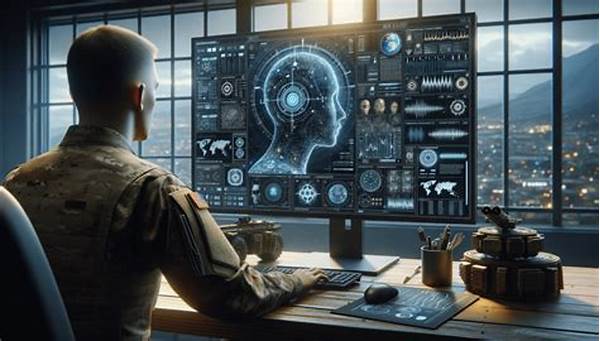In the dynamic and rapidly evolving landscape of modern warfare, Artificial Intelligence (AI) stands as both a revolutionary tool and a catalyst for profound ethical and operational dilemmas. With AI systems capable of executing specialized military tasks, such as reconnaissance, threat analysis, and even direct actions, there’s a mounting concern regarding the degree of human oversight required to govern these technologically advanced operations. The autonomy availed by AI in military contexts promises heightened efficiency and precision, yet it simultaneously raises questions about accountability, moral responsibility, and safety. What unfolds when machines, devoid of human empathy and judgment, are tasked with decisions of life and death?
Imagine a high-stakes scenario where an AI-controlled drone must decide whether to engage with a perceived threat. Without human oversight, such decisions might lack the ethical considerations that only humans can impart. While technology can boost the capability of military operations, it is the human oversight over AI military actions that ensures these operations remain aligned with international law and humanitarian principles. The intertwining of human oversight with AI applications in military actions is not merely a safety measure—it’s a moral imperative that safeguards human values in the teeth of technological advancements.
The Crucial Role of Human Oversight
Ensuring that AI systems in military settings operate within ethical and legal frameworks necessitates precise human oversight. Merely designating these systems with operational autonomy doesn’t absolve human agents from moral responsibilities. Instead, integrating human oversight over AI military actions is vital to maintain strategic, lawful, and ethically responsible applications of AI.
Human oversight acts as a crucial checkpoint for validating AI decisions, assessing risk levels, verifying the accuracy of threat assessments, and deciding on proportional responses. For example, AI systems designed to identify targets could yield false positives, potentially leading to unintended casualties. Here, human intervention becomes necessary to interpret AI outputs, question the implications, and provide corrections that align with humanitarian considerations.
Discussion: Importance of Human Judgment
Embracing a future where AI plays a pivotal role in military operations doesn’t mean sidelining human judgment. On the contrary, human oversight over AI military actions complements the autonomous nature of AI with a safety net woven from human ethics, wisdom, and accountability. History has repeatedly demonstrated the prowess of human insight in scenarios that demand nuanced understanding—something AI, despite its predictive analytics, cannot yet replicate.
Ethical Considerations in AI Military Operations
Ethical implications of AI applications in military operations emphasize the importance of human oversight. The autonomous nature of AI systems, when left unchecked, risks breaching international humanitarian laws. A notable point to remember is that while machines function on logic and data, they cannot comprehend the depth of human values, ethics, and emotions. Thus, embedding human oversight ensures that decisions, especially those affecting human lives, are executed with moral diligence.
Leaders in military and technological sectors are championing the integration of human oversight over AI military actions to bridge the gap between AI capabilities and human moral agency. Through rigorous training, ethical frameworks, and strategic governance, human oversight is positioned to direct AI in a manner that preserves humanity amidst the machine logic.
Insights and Challenges
Effective implementation of human oversight in AI military actions also faces challenges. Key among them is the training and availability of skilled personnel capable of understanding AI intricacies and managing systems efficiently. Moreover, addressing cybersecurity threats to ensure the integrity of AI systems is essential. Adopting transparent policies and dialogues on digital ethics can cultivate trust and openness essential in global defense communities.
Building Trust Through Transparency
Confidence in AI-driven military operations is achieved when stakeholders—governments, military personnel, and the public—support human oversight through transparent processes. Clear policy declarations, open discussions on ethical considerations, and returning to the fundamental questions of human dignity and rights are paths leading to acceptance and trust in AI systems bolstered by human intervention.
Detailing Five Aspects of Human Oversight
Conclusion Discussion
In the grand tapestry of technological evolution, AI undoubtedly claims an influential role in shaping future military landscapes. Yet, as we venture into this era of AI-enabled warfare, sustaining human oversight emerges as more than a precautionary measure; it’s an indispensable necessity. By ensuring human oversight over AI military actions, we bridge the gap between machine intelligence and human consciousness, safeguarding the principles and ethics inherent to our humanity.
The rising complexities in warfare demand that nations harness both AI’s precision and human insight. From ethical accountability to strategic decision-making, embedding human oversight is essential in navigating the moral quandaries posed by AI military applications. As we broaden our reliance on AI, the fusion of human and machine capabilities must be seamless and principled, echoing the essence of our collective moral and ethical beliefs.

